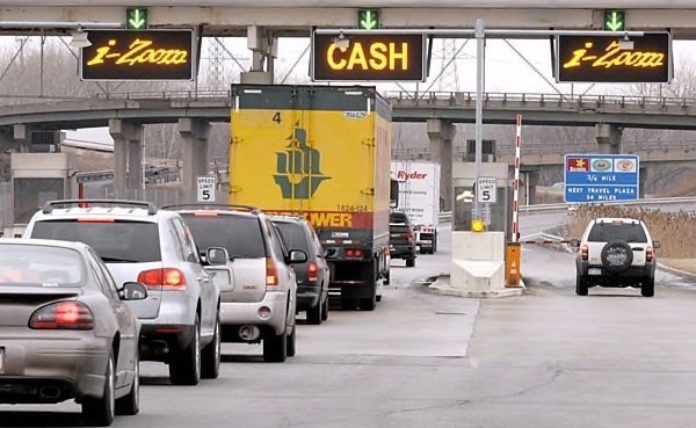Some northern Indiana lawmakers are calling into question Gov. Eric Holcomb’s decision against imposing new tolls on the state’s interstate highways, while allowing the Indiana Toll Road’s private operator to significantly boost rates for large trucks using that highway.
Democratic Sen. Karen Tallian of Portage tells the South Bend Tribune that the situation is unfair because only the communities in northern Indiana along the Toll Road will have the burden of higher tolls, while all parts of the state will benefit from the toll money.
The Republican governor announced in September that the operator of the Toll Road, which runs across the northern part of the state from the Illinois state line to the Ohio state line, would increase tolls by 35 percent in exchange for $1 billion for state infrastructure improvements over the next several years.
Holcomb’s plan directs $600 million toward speeding up the completion of the Interstate 69 extension between Indianapolis and Martinsville in central Indiana, but his administration maintains northern Indiana will get a fair share of the infrastructure spending.
State officials last month completed a plan on adding tolls to Indiana’s interstate system. But Holcomb said he believed fuel tax and vehicle registration fee increases approved by the General Assembly last year will sufficiently fund the state’s current road construction projects even though highway revenues are projected to start dropping after 2025.
“I’m happy that the governor isn’t looking at expanding tolling,” said Democratic Sen. David Niezgodski of South Bend. “But you have to believe people up here are getting fed up with seeing their money taken and distributed across the state.”
Legislators from both parties have raised questions about Holcomb’s handling of the Toll Road deal, even though his administration argues that the agreement — and the spending plan — is well within the governor’s legal authority.
Tallian, the top Democrat on the Senate Appropriations Committee, said she’s unsure of the constitutionality of Holcomb’s plan for spending the Toll Road money since it was made without the approval of the General Assembly.
“The Legislature sets the budget, not the governor,” Tallian said.
Gary Langston, president of the Indiana Motor Truck Association, said he was happy with the governor’s decision to halt new tolls.
Langston said the association also opposes tolling because it can increase prices of goods. He said he believes gasoline taxes are a more effective way to generate funds for infrastructure improvements.
Some local officials have raised concerns about trucks leaving the Toll Road to avoid the higher fees.
State highway department spokesman Scott Manning said the agency does not anticipate a “significant diversion of truck traffic onto local roads or highways parallel to the Toll Road resulting from the rate adjustment.”
Holcomb’s spending plan also calls for $190 million toward projects on U.S. Routes 20, 30 and 31; and $20 million toward luring new direct flight routes to the state. He also wants to spend $90 million to improve or build hiking and biking trails, and $100 million to improve rural broadband access.





